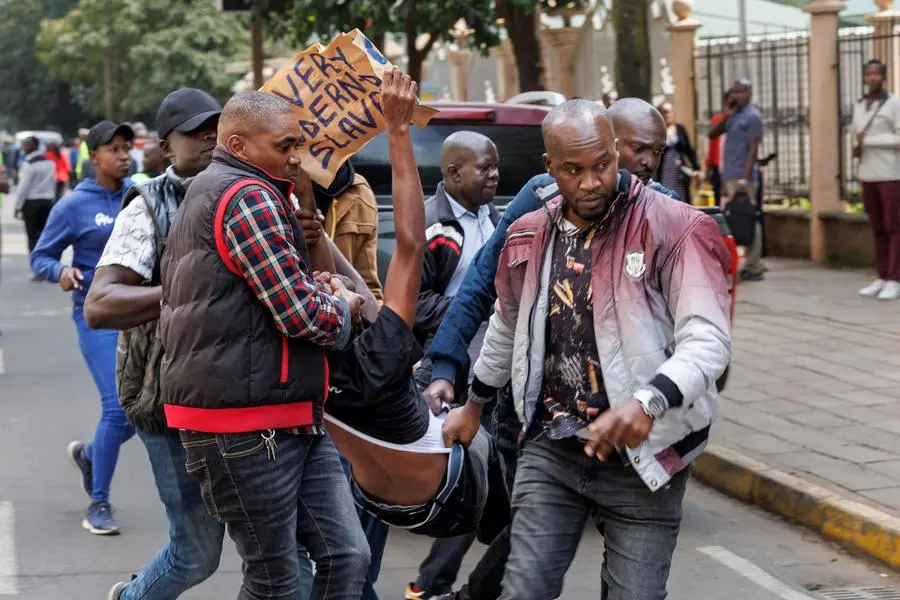PHOTO
Scores of Kenyans gathered outside parliament Tuesday to protest controversial tax hikes, with police deploying tear gas and making at least three arrests, according to AFP journalists at the scene.
The East African economic powerhouse has struggled with a biting cost-of-living crisis, which critics say will only worsen under the proposed levies.
The cash-strapped government has defended the move -- projected to raise some 346.7 billion shillings ($2.7 billion), equivalent to 1.9 percent of GDP -- as a necessary measure to cut reliance on external borrowing.
Dubbed "Occupy Parliament", news of the protest was shared online after an activist leaked MPs' contact details, urging people to bombard them with calls and messages to shoot down a bill proposing the new hikes.
Among the bill's most contentious provisions is a motor vehicle tax, set at 2.5 percent of the value of the car, and the reintroduction of VAT on bread.
Analysts say that while the taxes could slow down consumption and hurt the economy, the bill is expected to pass thanks to the large parliamentary majority President William Ruto's party enjoys.
In the face of growing discontent within the ranks, Ruto called a meeting to whip his MPs into backing the bill ahead of a parliamentary debate starting Tuesday afternoon.
Parliament must pass the final version of the bill before June 30.
Ruto came to power in 2022 on a promise to revive the economy and put money in the pockets of the downtrodden, but his policies have sparked widespread discontent.
He has raised income tax and health insurance contributions, and doubled VAT on petroleum products to 16 percent.
Last year's tax hikes led to opposition protests, sometimes degenerating into deadly street clashes between police and demonstrators.
While Kenya is among the most dynamic economies in East Africa, roughly a third of the 51.5 million population lives in poverty.
Overall inflation has remained stubbornly high at an annual rate of 5.1 percent in May, while food and fuel inflation stood at 6.2 percent and 7.8 percent respectively, according to central bank data.





















